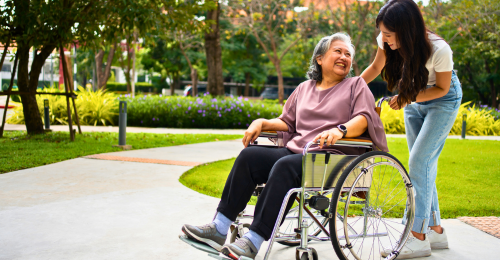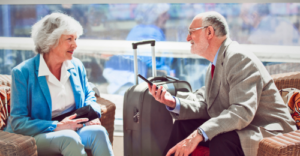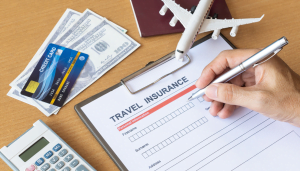How to Prepare for a Vacation When You Are a Caregiver
When you are a caregiver going on vacation, it can be a very challenging time for both of you. Still, with proper planning, you can enjoy your time away while ensuring your loved one receives the care they need. Whomever you are caring for, an aging parent, a disabled relative, or a loved one with special needs, this article will help you prepare for your trip with total peace of mind (well, maybe not total peace of mind).
1. Planning Ahead: Arranging Care While You Are Away
Understanding Your Loved One’s Needs
List your loved one’s daily routines, medical needs, and responsibilities. This will help you determine the level of care required and who will be best suited to step in during your absence.
Choose a Care Option
Depending on their needs, you have several options for temporary care:
- Family or Friends – a trusted family member or friend should be your first step in a temporary caregiver.
- Professional In-Home Care Services – Hire a home health aide or professional caregiver to provide assistance.
- Respite Care Facilities – Some assisted living communities and nursing homes offer short-term stays.
- Adult Day Care Services – Consider an adult daycare program if your loved one only needs daytime supervision.
Make sure to interview and vet any professional caregivers or facilities in advance.
2. Preparing a Comprehensive Care Plan
Create a Daily Schedule
Document daily routines, including:
- Meal times and dietary preferences
- Medication schedules
- Bathing, dressing, and hygiene routines
- Mobility assistance needs
- Recreational activities they enjoy
Write Down Emergency Contacts
Provide a detailed contact list, including:
- Primary doctors and medical specialists
- Nearby emergency contacts
- Local pharmacy
- Insurance details
Stock Up on Essentials
Ensure your loved one has everything they need before you leave:
- Medications: Refill prescriptions and organize them in a weekly pill organizer.
- Groceries and household supplies: Ensure they have adequate food, toiletries, and cleaning supplies.
- Medical equipment: Check that wheelchairs, walkers, oxygen tanks, and other necessary items are in good condition.
3. Home Security and Safety Precautions
Ensure a Safe Living Environment
- Remove trip hazards (loose rugs, clutter, etc.).
- Install nightlights in hallways and bathrooms.
- Place emergency call buttons within reach.
Home Monitoring and Security
If your loved one will be home alone for long periods, consider:
Using a Wi-Fi-enabled baby/elder monitor with two-way talk capabilities (Amazon) that allows remote monitoring from your smartphone, providing real-time video and audio of your loved one and their caregiver, as well as direct communication for reassurance or assistance from anywhere. If your loved one will be home alone for long periods, consider:
- Setting up a video doorbell or home security system.
- Using a GPS tracking device for dementia or memory care patients.
- Enabling phone check-ins or scheduled wellness calls.
4. Staying Connected While You’re Away
Technology for Easy Communication
Make it easy for your loved one and their temporary caregiver to stay in touch with you:
- Set up video calls via Zoom, FaceTime, or WhatsApp.
- Pre-load a phone or tablet with emergency contacts and caregiver numbers.
- Teach them how to use voice-activated assistants (like Alexa or Google Home) to make calls or set reminders.
Schedule Regular Check-Ins
Arrange for daily updates from the temporary caregiver. A quick text or check-in call will give you peace of mind.
5. Packing & Preparing for Your Own Vacation
Leave Without Guilt
As a caregiver, it’s essential to prioritize self-care. Taking time for yourself allows you to recharge and return to your role refreshed.
Pack With Peace of Mind
To enjoy your trip fully:
- Bring a portable power bank to keep your phone charged for updates.
- Pack a notebook or use a notes app to jot down any thoughts or reminders about caregiving while away.
- Consider using a travel journal to document your experiences for personal reflection.
6. Returning Home: Easing Back Into Caregiving
Check In With Your Loved One
Ask how they felt during your absence. Did they enjoy a different routine? Use this insight to make improvements for future care planning.
Express Gratitude
If family or professional caregivers stepped in, show them some appreciation with a thank-you card or note or small gift.
Take It Slow
Give yourself time to transition back into caregiving instead of jumping back into full responsibilities immediately.
Final Thoughts: Caregivers Deserve a Break Too!
With proper planning and support, caregivers can and should take vacations. Whether you’re away for a few days or an extended trip, having a solid care plan in place ensures your loved one’s well-being while you recharge.
🌍 Have you taken a vacation as a caregiver? What helped make your time away stress-free? Share your experiences in the comments! 😊✈️
Author: Stan P.
Stan Patterson passionately advocates for travel deal sources and its many benefits. As a travel Enthusiast, I have personally experienced many fantastic adventures. Through verycheaptravel.net, I share top travel booking deals and valuable information and resources on the latest going ons in the travel industry. I believe that a well-informed traveler will be a happy traveler.








